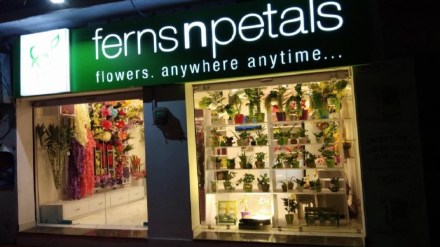A couple of years back Ferns N Petals’ (FNP) bottom line was wilting. Ambitious plans to scale up the business had gone awry. But CEO Pawan Gadia, who rues having blown up precious capital on advertising that didn’t really make any impact, says he has learnt from his mistakes.
Now, the company is rebooting the business with a quick-delivery effort. It is talking to logistics players to test 10-15 minute delivery in some locations. “If the customer wants it, let’s provide it. If I don’t do it, somebody else will,” says Gadia. The in-house initiative apart, FNP is also doing well on quick commerce apps such as Blinkit, Swiggy Instamart, and Zepto which now bring in close to 10% of the firm’s revenues.
The channel isn’t viable as yet but it’s important that it does turn profitable soon. That’s because the online channel is becoming increasingly popular with customers who want both convenience and speed. And, as Angshuman Bhattacharya, partner and national leader, the consumer product and retail sector, EY-Parthenon, points out, quick commerce (q-comm) can also enable planned gifting. Anand Ramanathan, Partner and Consumer Industry Leader, Deloitte India, believes q-comm could overlap with gifting as consumers show a willingness to pay. “Gifting is an attractive segment, especially with millennials willing to spend and be more involved,” he says. While online sales may not fetch FNP very big margins, they will help push up volumes and market share.
To be sure, FNP has some intrinsic strength. It has mastered the art of managing a complex supply chain, for fresh products, something that new players may struggle to do. Moreover, what it has going for it is a large consumer catchment.
Today, there are an estimated 60 million Indians with an annual income of over Rs 30 lakh per annum; this cohort is expected to grow to 120 million by the end of the decade. For these consumers, expenses on essentials are approximately 40-50% of their income. Deloitte’s Ramanathan, points out, discretionary spends in India remain high despite having halved in the last couple of years. “The propensity to spend on gifting where there is more involvement is high. This could be 1.5 times the amount spent on gifts that have less involvement,” he says.
The other reason why FNP’s online effort needs to get going is because real estate is costly. Setting up too many stores—especially in the bigger cities– could drain the company’s resources. The fact, however, is that of the 60 million affluent consumers, more than two-thirds resides in the country’s top 40 cities. “Rentals are expensive and since the business is seasonal, the working capital will be stressed for 6 months,” says an expert.
Currently, FNP runs four stores on its own while another 276 are run by franchisees. It is hoping to add 30-odd stores every year. As Gadia concedes finding franchise partners, who are invested not just in terms of money but also share the same thought process, is not easy.
Apart from building the online channel, experts say FNP must offer a wider assortment if it is to scale the business. With lifestyles changing, gifting is becoming more frequent and youngsters today are willing to spend much more on gifts. Moreover, many more options for products such as cakes are available. “This could be a risk,” says an expert, pointing out that consumers are willing to pay more for premium products which can be delivered by the bakery that makes them.
FNP is making efforts to add to its basket of merchandise. Today, cake, flowers and some gifts bring in 91% of the operating revenue. Adding to the assortment would help push up the average order value (AoV). In a highly disruptive environment, some innovation could help FNP ensure that it is able to grow its consumer base. As EY’s Bhattacharya observes, gifting as a concept is becoming big. “More valuable gifts could be offered through collaborations. There would be demand for bigger gifts with flowers playing a secondary role,” he believes. Bhattacharya adds that a plus – Gifting first plus flowers – model might create an expansion in the total addressable market and fetch bigger AoVs.
Experts say there would be demand for such gifting options.
Given how a big chunk of FNP’s revenues of more than 35% comes from overseas markets including the UAE and Singapore there could be an opportunity out there too. While Gadia claims the business can grow at 25% annually and make operating margins of 15%, it might not be easy. Revenues in FY24 grew by 16% to Rs 705 crore but this came off a weak base given that in FY23, revenues had grown by just 5%. Moreover, the losses of Rs 110 crore in FY23 narrowed to Rs 24 crore in FY24, largely, as Gadia told FE, thanks to lower costs. The company reined in manpower and marketing costs. The company automated some roles thereby reducing the headcount in its customer support team to 275 from around 350.
Despite this, there was an operating loss of Rs 8.6 crore. Also, the cost of materials, which accounted for 42% of total expenses in FY24, can only go up due to general inflation. Raising prices at a time when incomes for a large section of consumers are not growing too fast could hurt sales.
